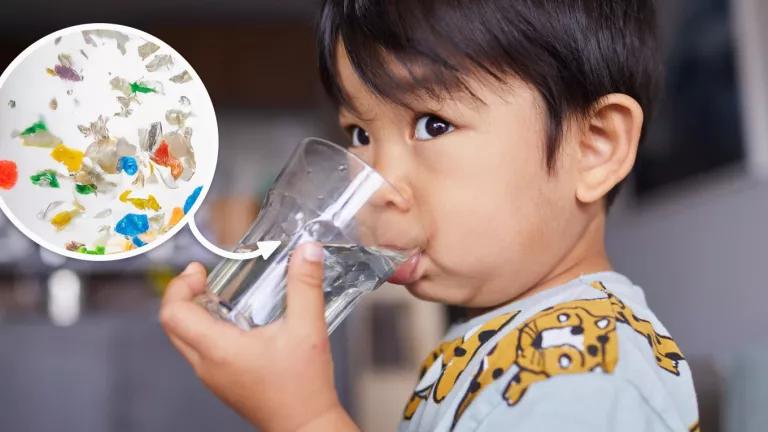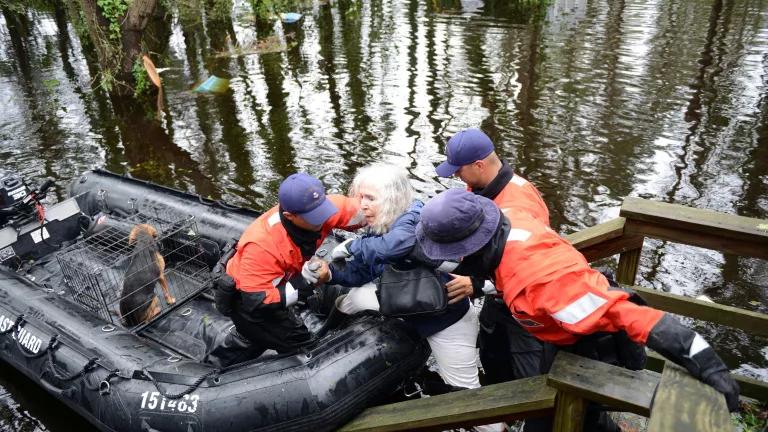When President Obama nominated John Bryson for Secretary of Commerce a few weeks ago, a handful of conservative lawmakers made much of Bryson’s role in founding NRDC. They claimed that because Bryson helped launch an environmental organization, he must be some kind of radical.
The history of John Bryson’s career and NRDC’s track record prove otherwise. John can speak for himself—and will today at his confirmation hearing before the Senate Commerce Committee. As for NRDC, where to begin?
For more than four decades, NRDC has played a vital role in developing and implementing our nation’s bedrock environmental and health protections, including the Clean Air Act, signed by President Nixon; the Safe Drinking Water Act Amendments, signed by President Reagan; and the Clean Air Act Amendments, signed by President George. H. W. Bush.
Upholding American law is not a radical act. The real “radicals” here are those who would undo 40 years of case law, precedent, and progress.
American citizens do not advocate for dirtier air or more pollutants in drinking water. But vested interests do—the polluting industries that are required by law to clean up their act. It is these vested interests that are labeling Bryson today. And it is these vested interests that routinely stand in the way of public health and environmental advances that Americans across the political spectrum support.
It’s true that when NRDC opened its doors in 1970, holding polluters accountable in court was a relatively new idea, just as civil rights law had been a new idea in previous decades. But like many of the innovative concepts that have shaped our nation, environmental protections grew out of a commonly held desire to make America safe, just, and strong for generations to come.
Over the years, NRDC has helped clean up the air we breathe and the water we drink.
Back in the 1970s, 88 percent of American children had blood levels of lead surpassing the Center for Disease Control’s level of concern and 300,000 children each year had IQs below 70 because of lead poisoning. NRDC helped phase lead out of gasoline, and by 2000, only 2.2 percent of American children had lead levels of concern.
NRDC helped create the program that reduces acid rain—something President George H. W. Bush cited as his proudest statutory achievement—which has reduced the amount of soot and smog Americans breathe and prevented 20,000 to 50,000 premature deaths a year because the same pollutants that cause acid rain damage our health.
We have secured national energy efficiency standards for household appliances that have saved consumers billions of dollars on their utility bills. We have promoted policies and technologies that keep raw sewage out of the nation’s beaches. And we have secured protections for iconic American landscapes, from Yellowstone National Park to the Chesapeake Bay.
You can click here for a timeline of our victories. Good luck finding anything extreme there.
NRDC has worked with a wide variety of partners in our efforts to secure environmental safeguards. Sometimes our allies have included small community organizations, sometimes major corporations like Wal-Mart and Pacific Gas & Electric.
To promote clean energy, we partner not only with wind and solar innovators but also with national security hawks such as Former U.S. Secretary of State George P. Shultz, and Assistant Secretary of the Navy Jackalyne Pfannenstiel. Former Director of the CIA James Woolsey said: “I have worked with NRDC for more than 30 years. They have led the way in advocating real-world solutions that can set America free from our dangerous dependence on imported oil.’’
We have found common cause with ranchers, labor unions, environmental justice advocates, business executives, physicians, religious leaders, sustainable farmers, veterans, and the millions of other Americans who want to leave their children a healthy planet.
We have also found plenty of allies in Congress. Many of our biggest legislative victories had strong bipartisan support. The Clean Air Act Amendments of 1990 for instance, were supported by 89 Senators and 410 Representatives.
That and so many other environmental laws garnered support because they help create the kind of cleaner, safer future all Americans want. A few insist on calling that radical. We call it progress.



